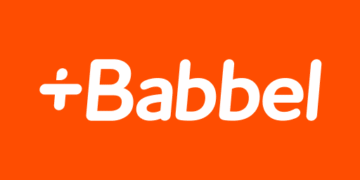Many new ventures fail not from bad ideas, but from poor groundwork. Skipping deep investigation leads to costly mistakes.
Thorough analysis transforms a vague concept into a viable company. It reveals the true landscape of your chosen market.
This process uncovers critical information about customer demand and rival companies. It helps you spot potential pitfalls early.
Understanding these elements is the first step toward sustainable success. Solid data informs every part of your strategic document.
This guide explores the essential research every founder should complete. We break down the key areas that demand your attention.
Key Takeaways
- Solid research prevents unrealistic expectations and poor decisions.
- Market and competitor analysis forms the foundation of any good plan.
- Research connects directly to long-term viability and profitability.
- Both quantitative data and qualitative insights are crucial.
- Systematic investigation turns ideas into actionable, structured ventures.
- Identifying potential pitfalls early saves significant resources.
- Thorough groundwork supports realistic financial projections.
Understanding Your Entrepreneurial Readiness and Personality Fit
Launching a venture demands more than just a great idea. It requires a specific mindset and temperament. Not everyone thrives in the high-stakes world of ownership.
Your personal characteristics play a huge role in your potential for success. Honest self-reflection is the first critical step on this journey.
Assessing Your Personal Suitability for Entrepreneurship
Certain traits strongly indicate a good fit for running a company. Creativity, resilience, and a high tolerance for risk are common among founders.
Leadership qualities are essential for guiding a team and vision. You must be comfortable making tough decisions alone.
Conversely, some characteristics can create major obstacles. An aversion to hard work or poor people skills often leads to failure.
If you dislike constant interaction with clients and staff, consider other paths. Ownership involves managing relationships with many different people.
Identifying Your Strengths and Weaknesses as a Business Owner
Take time to list your core abilities and areas for improvement. Leverage your strengths, like innovation or strategic thinking, in your venture.
Be brutally honest about weaknesses that need addressing. Poor stress management or indecisiveness can sink a young company.
Your work ethic directly impacts every aspect of the operation. You set the tone for your entire team’s effort and dedication.
Remember, you bear ultimate responsibility for all outcomes. This includes negative consequences from a faulty product or poor service.
When to Seek Professional Personality Assessment
If you feel uncertain, consult a specialist who works with founders. They offer objective insights through validated personality tests.
These assessments can clarify if ownership aligns with your innate tendencies. They provide data beyond simple self-perception.
This professional guidance helps avoid costly missteps early on. It’s an investment in your long-term satisfaction and sustainability.
Many successful ventures are led by people whose traits match their industry’s demands. Finding this alignment is key to personal and professional fulfillment.
Conducting Comprehensive Market and Competitor Analysis
Gaining deep insight into your competitive landscape separates thriving ventures from struggling ones. This examination reveals critical information about customer preferences and rival operations.
Solid intelligence helps you avoid common pitfalls. It also identifies opportunities for differentiation in your chosen field.
Identifying and Researching Your Direct Competitors
Start by locating companies offering similar products or services. Use industry databases and online tools to compile a complete list.
Customer surveys can reveal unexpected competitors. People might consider alternatives you haven’t anticipated.
Study their online presence thoroughly. Social media analysis shows how they interact with their audience.
Analyzing Pricing Strategies and Customer Reach Methods
Examine how competitors price their offerings across different tiers. Look for patterns in their approach to various customer segments.
Note their marketing channels and messaging strategies. Some companies excel at digital outreach while others use traditional methods.
Customer reviews provide valuable feedback about what works. They highlight both strengths and weaknesses in current market offerings.
Evaluating Market Size Through Industry Benchmarks
Two main approaches help gauge your potential market. Benchmarking against successful companies shows achievable performance levels.
Analyzing customer purchase data reveals actual market size. This includes demographic information and buying patterns.
Industry statistics provide concrete numbers for planning. They help create realistic projections for sales and growth.
This data informs every aspect of your venture’s development. It transforms guesses into calculated business decisions.
Before Creating a Business Plan an Entrepreneur Must Research Legal and Financial Requirements
Navigating the complex web of legal and financial obligations is a critical step in venture development. This groundwork ensures operational legitimacy from day one.
Many ventures stumble due to overlooked compliance issues or insufficient capital. Proper due diligence prevents these common pitfalls.
Understanding Necessary Permits, Licenses, and Certifications
Every industry has specific documentation requirements for legal operation. Research local, state, and federal mandates for your field.
Create a comprehensive checklist of required credentials. This includes professional certifications and operational permits.
Consult industry associations for guidance on specific needs. They often provide templates and resources for compliance.
Researching Financing Options and Capital Requirements
Accurate financial projections require understanding true capital needs. Calculate startup costs and ongoing operational expenses.
Explore various funding sources for your venture. Personal savings and family contributions are common starting points.
Angel investors and venture capitalists offer alternative financing. Traditional bank loans provide another avenue for capital acquisition.
Each funding source has different requirements and implications. Understand the true cost of capital from each option.
Assessing Regulatory Compliance and Restrictions
Regulatory frameworks vary significantly across industries and locations. Research restrictions that might limit your operations.
Understand compliance timelines and associated costs. Some regulations require ongoing maintenance and reporting.
Build a network of legal and accounting professionals. Their expertise helps navigate complex regulatory environments.
Evaluate whether market potential justifies compliance costs. This assessment informs overall venture viability.
Defining Your Target Audience and Customer Needs
Your venture’s success depends entirely on understanding who buys from you. Knowing your audience shapes every aspect of your operation.
This knowledge helps refine your offerings and messaging. It ensures your marketing and sales efforts reach the right people.
As attorney Sonia Lakhany advises, “It is crucial to make sure you are delivering what your customer wants, not what you want.” This approach saves significant experimentation later.
Distinguishing Between B2B and B2C Market Research Approaches
Business-to-business and business-to-consumer companies need different research methods. B2B focuses on organizational needs and decision-making processes.
These ventures target other companies as customers. Their marketing must address multiple stakeholders and longer sales cycles.
B2C companies target individual consumers. Their research examines personal preferences and emotional buying triggers.
Communication strategies differ greatly between these approaches. Your messaging must match your audience’s expectations.
Identifying Customer Pain Points and Buying Behaviors
Effective research uncovers what problems your potential customers face. Surveys and interviews reveal their deepest frustrations.
Analyze customer feedback and complaints from existing products. This data shows where current solutions fall short.
Understand what triggers purchase decisions in your market. Some buyers respond to price while others value quality.
Loyalty factors vary across different customer segments. Some prioritize convenience while others seek exceptional service.
Validating Product-Market Fit Through Research
Testing your concept with real users provides invaluable insights. Minimum viable product testing gathers feedback before full development.
Pilot programs with early adopters reveal practical usage patterns. Their experiences help refine your final offering.
This validation process confirms whether your solution truly meets needs. It prevents costly launches of unwanted products.
Use this research to adjust pricing and marketing messages. These refinements increase your chances of successful market entry.
Developing Your Distribution Strategy and Operational Plan
Your venture’s physical and digital pathways to customers define its reach. Deciding how to deliver offerings shapes customer experience and operational costs.
Effective distribution ensures products or services reach buyers efficiently. This requires careful evaluation of available channels and limitations.
A clear operational framework supports sustainable growth. It aligns delivery capabilities with market expectations.
Researching Distribution Channels and Logistics
Examine various pathways to market for your offerings. Direct sales provide maximum control over customer relationships.
Retail partnerships expand physical presence quickly. Wholesalers help reach broader geographic areas.
Online platforms offer global access with lower overhead. Each channel has different requirements and commission structures.
Logistics research covers storage needs and transportation options. Proper inventory management prevents stockouts or overstock situations.
Analyze fulfillment costs for each distribution method. These expenses directly impact your pricing strategy.
Analyzing Shipping Limitations and Service Capabilities
Product characteristics determine shipping options. Fragile items need special packaging and handling.
Geographic reach affects delivery timelines and costs. Some areas have limited carrier availability.
Customer expectations shape service level decisions. Next-day delivery might be essential for some markets.
Evaluate what service levels you can consistently maintain. Overpromising leads to disappointed customers.
Identify any capacity constraints early. These limitations affect growth potential and scalability.
Evaluating Marketing and Advertising Approaches
Different channels work for various audiences. Digital marketing reaches tech-savvy customers effectively.
Traditional media still connects with certain demographics. Social media builds community around your brand.
Influencer partnerships provide authentic endorsements. Each approach requires different resources and expertise.
Test multiple channels with small budgets first. Performance data shows what delivers the best results.
Align marketing efforts with your distribution choices. Messaging should match the customer’s purchase journey.
Your operational framework must support your company’s mission. A clear purpose guides all distribution and service decisions.
This strategic alignment ensures long-term viability. It turns operational details into competitive advantages.
Conclusion: Turning Research into Actionable Business Strategy
Your thorough investigation now transforms into a powerful strategic document. This comprehensive analysis provides the foundation for every component of your company’s blueprint.
Use these insights to create realistic financial projections and operational timelines. Your research demonstrates market understanding to potential investors and partners.
Kevin MacCauley of Upper Hand emphasizes decisive action. “If you’re 70 percent of the way to making a decision, make the decision.” Avoid analysis paralysis while remaining adaptable.
This documented work establishes clear performance indicators for measuring success. It helps secure necessary funding and attracts talented professionals.
Your strategic plan becomes a living document that evolves with new information. It guides daily operations while supporting long-term growth objectives.
FAQ
Why is research critical before writing a business plan?
Research provides the foundation for a realistic and effective plan. It helps entrepreneurs understand the market, identify customer needs, analyze competitors, and anticipate financial requirements. Skipping this step often leads to flawed assumptions and business failure.
How do I know if I’m personally suited to entrepreneurship?
Assess your risk tolerance, resilience, and passion for the venture. Honest self-evaluation of strengths and weaknesses—like leadership skills or financial management—helps determine readiness. Tools like the Entrepreneurial Personality Profile can offer deeper insights.
What should a competitor analysis include?
A thorough analysis examines competitors’ products, pricing, marketing tactics, customer reviews, and market share. It also identifies gaps in their offerings that your business can exploit to gain a competitive edge.
What legal and financial research is necessary?
Entrepreneurs must research required permits, licenses, and zoning laws. They should also explore financing options—like loans, grants, or investors—and calculate startup costs, operational expenses, and revenue projections to ensure financial viability.
How do I identify my target audience effectively?
Use demographic and psychographic data to define who your ideal customers are. Conduct surveys, focus groups, or interviews to understand their pain points, preferences, and purchasing behavior. This ensures your product or service meets real demand.
What operational factors should I research?
Investigate supply chain logistics, distribution channels, technology needs, and staffing requirements. Assess potential bottlenecks—like shipping limitations or production delays—to create a smooth and scalable operational plan.





